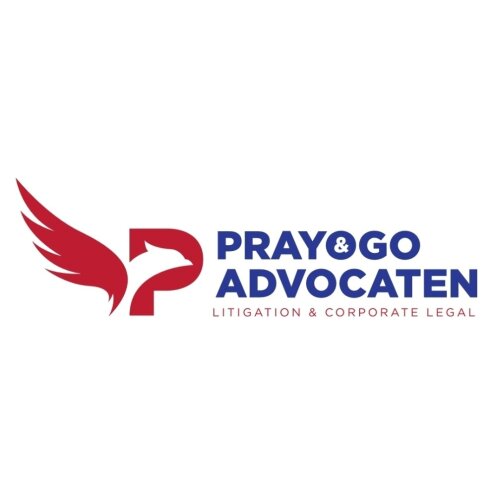Best Project Finance Lawyers in Tangerang
Share your needs with us, get contacted by law firms.
Free. Takes 2 min.
List of the best lawyers in Tangerang, Indonesia
About Project Finance Law in Tangerang, Indonesia
Project finance is a method of funding large-scale infrastructure and industrial projects through a structured arrangement where repayment relies primarily on the project's cash flow. In Tangerang, Indonesia, project finance is commonly used for developments in sectors such as energy, transportation, water supply, telecommunications, and public infrastructure. The legal frameworks in Indonesia, including those enforced in Tangerang, dictate how these projects are structured, financed, and operated. This involves a web of contracts and agreements among sponsors, lenders, contractors, government agencies, and other stakeholders, all within compliance with Indonesian law.
Why You May Need a Lawyer
Engaging a lawyer with experience in project finance can be crucial for several reasons. Here are common situations where legal assistance is highly recommended:
- Structuring complex financial arrangements and contracts between multiple parties
- Navigating government regulations and obtaining necessary permits or licenses
- Ensuring compliance with local and national laws, especially concerning foreign investment
- Managing risks associated with construction, environmental issues, and long-term operations
- Advising on tax implications and benefits related to infrastructure investments
- Assisting with land acquisition and resolving disputes with landowners or communities
- Representing your interests in negotiations with banks and other financial institutions
- Advising on public-private partnership (PPP) arrangements and government tenders
- Resolving disputes through negotiation, arbitration, or litigation if conflicts arise during the project
Local Laws Overview
Project finance in Tangerang is governed by a combination of Indonesian national laws and local regulations. Key aspects include:
- Foreign Investment Regulations: Foreign entities often need partnerships with local firms and approval from the Indonesia Investment Coordinating Board (BKPM).
- Land Acquisition Laws: Land procurement for public projects must comply with Law No. 2 of 2012 and its supporting regulations, which set procedures for compensation and community consultation.
- Public-Private Partnerships (PPP): PPPs in infrastructure follow specific frameworks under Government Regulation No. 54 of 2017 and related presidential regulations.
- Concession Agreements and Licensing: Major projects require various permits, such as environmental, building, and operational licenses, issued by national or Tangerang local authorities.
- Banking and Finance Laws: Financial structure and lending arrangements must follow rules promulgated by Bank Indonesia and the Financial Services Authority (OJK).
- Taxation: Projects may be eligible for tax incentives under Indonesia’s investment laws, but must also comply with national and regional tax obligations.
- Dispute Resolution: Contracts usually specify Indonesian courts or arbitration under the Indonesian National Arbitration Board (BANI) as the dispute forum.
Frequently Asked Questions
What is project finance, and how is it structured in Tangerang?
Project finance is a funding method where lenders and investors look primarily to the cash flow generated by the project itself for repayment, rather than to the assets or creditworthiness of sponsors. In Tangerang, projects are typically structured through special purpose vehicles (SPVs) that isolate financial risk.
Do foreign investors need a local partner when financing projects in Indonesia?
In many sectors, foreign investors must partner with a local entity or meet minimum ownership requirements. The type and structure of partnership depend on the project’s nature and relevant regulations.
What permits and approvals are necessary for a project finance deal in Tangerang?
Permits may include land use rights, environmental permits (AMDAL), building permits (IMB), business licenses, and, for certain sectors, additional industry-specific approvals from national and local agencies.
How is land acquired for large projects in Tangerang?
Land acquisition must follow Indonesian Land Law and Law No. 2 of 2012, which outline compensation procedures, community consultations, and options for dispute resolution with affected parties.
Are there specific incentives for infrastructure or energy projects?
Yes, the government of Indonesia offers incentives such as tax holidays, import duty exemptions, and other benefits for specific types of infrastructure and energy projects, subject to eligibility and compliance with investment laws.
Why is a special purpose vehicle (SPV) commonly used in project finance?
An SPV separates the project’s financial risk from investors and sponsors, provides clearer governance, and facilitates easier management of contracts and liabilities.
What are the common risks in project finance transactions?
Risks can include construction delays, cost overruns, legal or regulatory changes, environmental challenges, currency fluctuation, and disputes among contracting parties.
How are disputes resolved in project finance agreements?
Disputes may be resolved through negotiation, mediation, arbitration (typically at BANI), or proceedings in the Indonesian courts, depending on contractual agreement.
What local authorities regulate project finance in Tangerang?
Relevant authorities include the Regional Government of Tangerang, the Indonesia Investment Coordinating Board (BKPM), Financial Services Authority (OJK), Ministry of Public Works, and sector-specific regulators.
How can a lawyer help navigate local regulations and contracts?
A lawyer provides guidance on legal requirements, drafts and reviews contracts, advises on risk management, assists with obtaining permits, and represents clients in negotiations or disputes.
Additional Resources
Here are some resources and organizations that may help people seeking legal advice in project finance in Tangerang, Indonesia:
- Badan Koordinasi Penanaman Modal (BKPM) - Indonesia Investment Coordinating Board
- Dinas Penanaman Modal dan Pelayanan Terpadu Satu Pintu (DPMPTSP) Kota Tangerang - Tangerang Investment and Licensing Agency
- Kementerian Pekerjaan Umum dan Perumahan Rakyat (PUPR) - Ministry of Public Works and Public Housing
- Otoritas Jasa Keuangan (OJK) - Financial Services Authority
- Badan Arbitrase Nasional Indonesia (BANI) - National Arbitration Board
- Local law firms with expertise in infrastructure, construction, and finance law
- Real estate and construction consultants familiar with local regulations and procedures
Next Steps
If you are considering or currently involved in a project finance deal in Tangerang, Indonesia, taking the following actions will help ensure a smooth process:
- Gather all relevant project details, including partners, financing plan, location, and scope
- Consult with a legal professional who understands both local and international aspects of project finance
- Check for compliance with all local regulations and obtain necessary permits or licenses in advance
- Review and negotiate all contracts and agreements with input from your lawyer
- Stay updated on any regulatory changes that may affect your project
- If disputes arise, seek advice on the most effective resolution mechanisms as laid out in your contracts
Taking proactive legal steps helps reduce risks and supports the successful delivery of your project in Tangerang. Consider reaching out to a qualified project finance lawyer for tailored advice specific to your situation and objectives.
Lawzana helps you find the best lawyers and law firms in Tangerang through a curated and pre-screened list of qualified legal professionals. Our platform offers rankings and detailed profiles of attorneys and law firms, allowing you to compare based on practice areas, including Project Finance, experience, and client feedback.
Each profile includes a description of the firm's areas of practice, client reviews, team members and partners, year of establishment, spoken languages, office locations, contact information, social media presence, and any published articles or resources. Most firms on our platform speak English and are experienced in both local and international legal matters.
Get a quote from top-rated law firms in Tangerang, Indonesia — quickly, securely, and without unnecessary hassle.
Disclaimer:
The information provided on this page is for general informational purposes only and does not constitute legal advice. While we strive to ensure the accuracy and relevance of the content, legal information may change over time, and interpretations of the law can vary. You should always consult with a qualified legal professional for advice specific to your situation.
We disclaim all liability for actions taken or not taken based on the content of this page. If you believe any information is incorrect or outdated, please contact us, and we will review and update it where appropriate.









